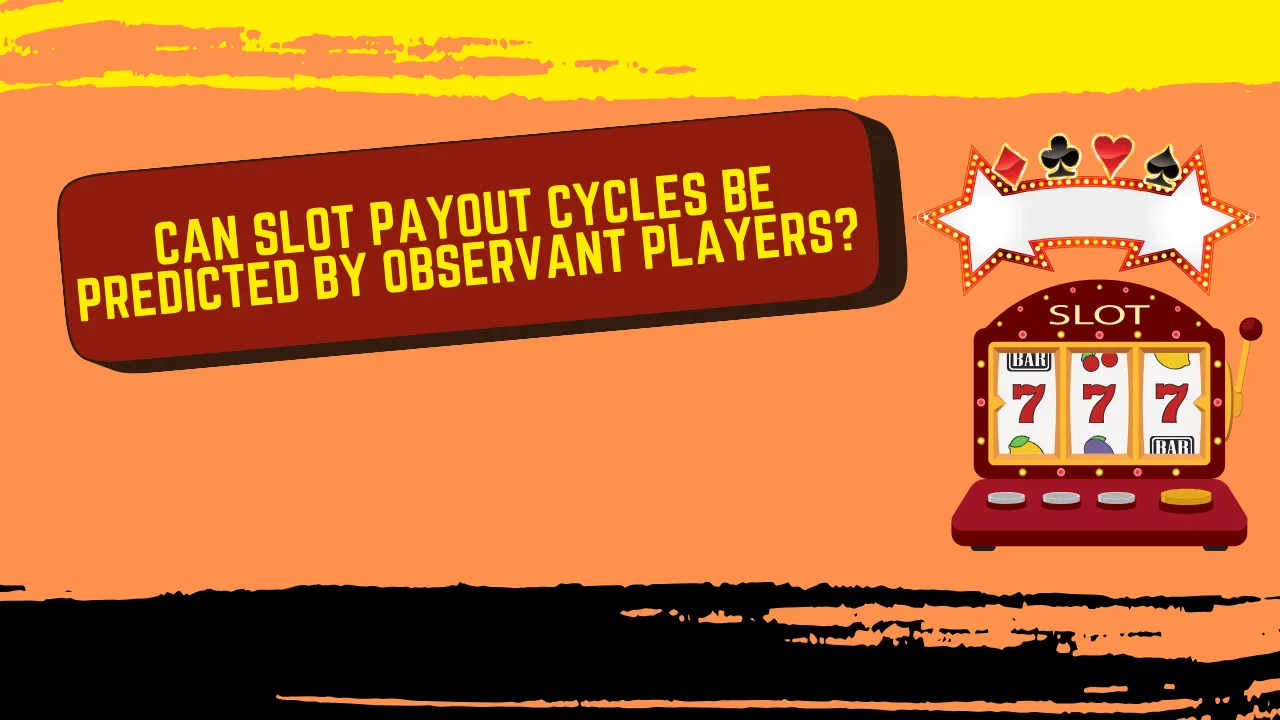Slot machines have long been surrounded by myths, speculation, and strategies from players trying to outsmart the system. One of the most enduring questions is whether payout cycles can be predicted. Regulars in casinos often claim they’ve “felt” when a machine is about to hit, while others insist that with enough observation, patterns become clear. But is there any truth to this idea, or is it simply wishful thinking wrapped in anecdotal evidence?
As someone who has spent years following developments in the casino industry and speaking with both players and gaming experts, I’ve come to appreciate the subtle nuances behind this question. While the idea of predicting slots is appealing, the reality is much more complex.
Understanding How Slot Machines Work
To evaluate whether payout cycles can be predicted, we first need to understand how slot machines are designed. Modern slots, whether in physical casinos or online platforms, are powered by Random Number Generators (RNGs). These algorithms produce thousands of number combinations every second, and each spin is entirely independent of the last.
This means that no matter how observant you are, the result of one spin doesn’t influence the next. The idea of a machine being “due” for a payout is a misconception, though it persists in gambling culture. Casinos depend on this unpredictability, and regulators ensure RNG systems meet fairness standards before being deployed.
Why the Myth of Payout Cycles Persists
If slots are random, why do players still believe they can spot cycles? Much of it comes down to human psychology. People are naturally wired to seek patterns, even in random events. When a machine pays out after a long dry spell, it reinforces the belief that persistence or timing made the difference.
Casinos also design machines to play into this perception. Sounds, lights, and near misses create the impression of progress toward a win. For an observant player, it can feel as though cycles are forming, when in fact, it’s simply the randomness of the RNG at work.
The Role of Volatility and RTP
Although payout cycles themselves can’t be predicted, slots are not entirely opaque. Every machine is programmed with a Return to Player (RTP) percentage and a level of volatility. RTP indicates the long-term average payout a player can expect, while volatility measures the risk and reward balance.
High-volatility slots may seem to go cold for long periods, then suddenly deliver a large win. Low-volatility slots, on the other hand, provide smaller but more frequent payouts. Observant players can choose machines based on these characteristics to align with their risk appetite, but this isn’t the same as predicting a cycle. It’s more about informed decision-making than forecasting outcomes.
Comparing to Other Casino Games
When considering predictability, it’s helpful to compare slots to other games. In poker, for instance, skill and observation play significant roles. Players can study their opponents, use strategy, and improve their odds over time. Online platforms offering the best uk poker sites provide opportunities for skill-based play, where outcomes depend less on random chance and more on expertise.
Slots, by contrast, are designed as games of chance. The lack of strategy is part of their appeal, making them accessible to casual players. But it also means that unlike poker or blackjack, no amount of observation will let you “predict” when a jackpot is around the corner.
Stories from the Casino Floor
Despite the science, I’ve met countless players who swear by their systems. One seasoned gambler told me he always waits for someone else to feed money into a machine before swooping in, convinced that the buildup of “lost” spins increases his chances. Another insists that certain times of day — usually when casinos are busier — bring better odds of hitting a payout.
These stories are fascinating, but when tested against actual casino data, they rarely hold up. Machines don’t have memory, and casinos don’t secretly program them to pay out at specific times. The unpredictability is not only intentional but also legally required in most jurisdictions.
Responsible Gaming and Realistic Expectations
The belief in payout cycles can be harmless fun, but it also risks leading players into problematic behavior. Chasing wins because a machine “must” be about to pay can result in losses piling up quickly. Responsible gaming advocates emphasize the importance of treating slots as entertainment rather than a source of predictable profit.
Setting time and budget limits is a far more effective strategy than chasing elusive cycles. The enjoyment should come from the excitement of the spin, not from the illusion of control. Casinos are designed to favor the house in the long run, and no amount of observation can change that reality.
The Future of Slots and Player Perceptions
Technology continues to shape the gaming industry, with online platforms offering new levels of accessibility and variety. Some developers are experimenting with skill-based slots, blending traditional RNG mechanics with interactive elements. These games could provide a middle ground where observation and decision-making play a role.
Still, the core principle of randomness will remain. Regulators and players alike expect fairness, and true predictability would undermine the integrity of the entire industry. For now, payout cycles remain firmly in the realm of myth, even if the stories surrounding them continue to thrive.
Conclusion
So, can slot payout cycles be predicted by observant players? The straightforward answer is no. Slots operate on RNGs that ensure independence and fairness, making cycles impossible to forecast. While observant players can make smarter choices by considering volatility and RTP, they can’t influence or foresee when the next big win will occur.
For players who crave strategy and the chance to outthink opponents, games like poker offer a better fit. Slots, meanwhile, are best enjoyed for what they are — a blend of entertainment, luck, and suspense. The key lies in embracing the unpredictability and playing responsibly.










